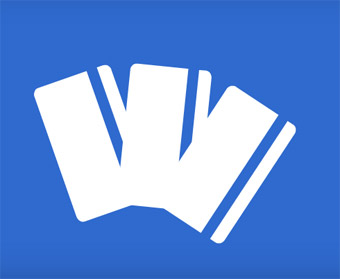Credit Card Consolidation for a Debt-Free Future
Credit card consolidation is an option for borrowers with excessive debt, multiple accounts, and high interest rate cards. Customers are offered balance transfer cards with low introductory rates that help them to save money on interest charges. Transferring existing balances is a way to pay off debt faster provided that they pay the balance in full each month.
How and When to Consolidate Credit Card Debt
This is usually the best option for borrowers with high interest department store, specialty, and other cards. Customers with good credit are offered plenty of low-interest balance transfer cards with beneficial features such as concierge services, complimentary points, and discounts. Even if you have average credit, there are options available, but ask for the minimum score for qualifying. This is a low-cost solution and one alternative to bank loans that helps borrowers to save hundreds of dollars. To find out whether it is a good idea to consolidate, you may want to contact your bank. Another option is to use a consolidation calculator online. Just enter your interest rate, monthly payment, and current balance. Then enter a set amount you would like to pay on a monthly basis. The calculator will show your proposed payment details, including your current balance, proposed interest rate, and time to pay off your loans. Banks also offer online calculators and different options to consolidate debt. One is to apply for a personal loan with a fixed or variable interest rate. Banks offer flexible payment options and monthly, biweekly, and weekly payments. A fixed interest rate is a good choice in that it makes budgeting and planning easier. Borrowers feel at ease knowing the amortization period, repayment schedule, monthly payment, and interest rate.

Benefits of Credit Card Consolidation and Factors to Consider
One benefit is that payments are easier to keep track of and manage. The fact that borrowers get a reduced interest rate means that they benefit from smaller or more affordable monthly payments. The monthly payment amount depends on the terms, interest rate, and total amount. What is more, having one outstanding balance to repay saves time. You can access your account and statements online and through mobile banking.
Consolidation is a beneficial tool if you find a card that comes with no or low interest rate and no or low balance transfer fees. Some banks and credit unions offer zero percent interest during the introductory period. This means that borrowers save on monthly finance charges. To attract new customers, some issuers also offer long introductory periods that can be as long as two years. Other issuers offer attractive interest rates that remain low over the life of the card. Some balance transfer cards feature no annual fees for further savings. However, even if you are offered a low interest credit card, paying the minimum won’t help you to pay off your loans faster. For example, if the minimum payment is 2 – 3 percent of the balance, the interest charges may exceed the outstanding balance. It may take you years to repay your card debt.
In any case, credit card debt consolidation is beneficial if you get a low interest rate, along with perks such as online and high-street offers, attractive discounts, cash advances, handy extras, and other perks.
Eligibility Criteria and Requirements
Some issuers have minimum income requirements and require very good or excellent credit to qualify. You must be a resident or citizen of the age of majority. In other cases, you are more likely to get accepted if you meet the requirements but you are not automatically disqualified. The introductory interest rates, offers, and other terms are also subject to status. Customers with a history of delinquencies, late payments, court judgments, and consumer proposals may not qualify for a balance transfer card.
When Debt Consolidation Is Not an Option
If your credit score is tarnished and consolidation is not an option, you may want to contact your card issuer and ask if they can lower your interest rate or offer a modified payment plan. Depending on your debt level and types of loans and credit cards, consider options such as settlement, credit counseling, and debt management. Finally, you may want to combine credit consolidation with counseling or a debt repayment plan.
Related Articles
Credit Counseling and Debt Management to Learn Important Skills
Credit counseling and debt management are alternatives to bankruptcy and help borrowers to learn important skills such as budgeting and money management. Borrowers are taught practical money skills to avoid excessive debt, delinquencies, and bankruptcies. Counselors teach borrowers how to get rid...
Debt Consolidation for High-Interest Credit Cards and Loans
Debt consolidation is a process that allows borrowers to combine multiple loans. It is designed for people with serious financial problems who are unable to make their monthly payments. Options to Choose FromBorrowers can choose from three options depending on their circumstances – a balance...
